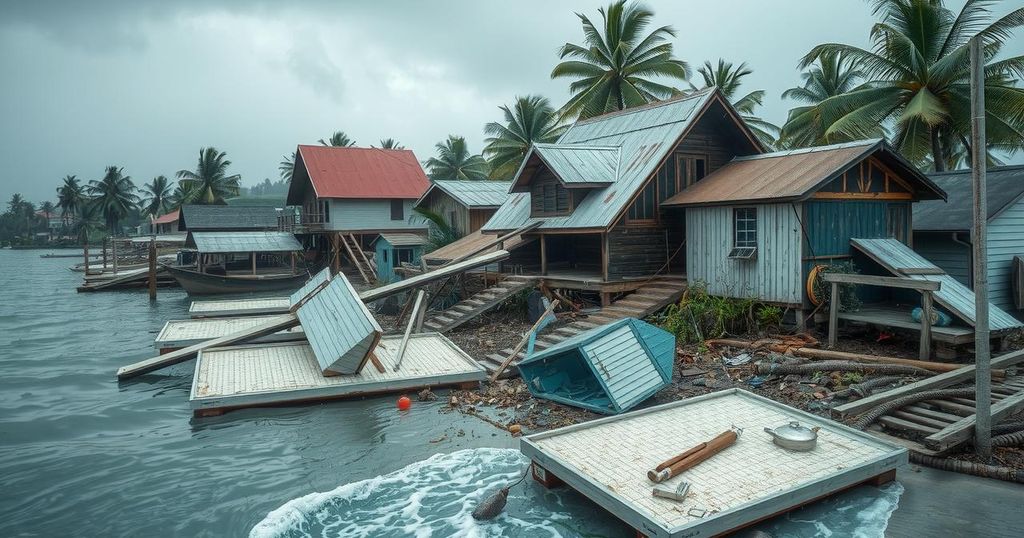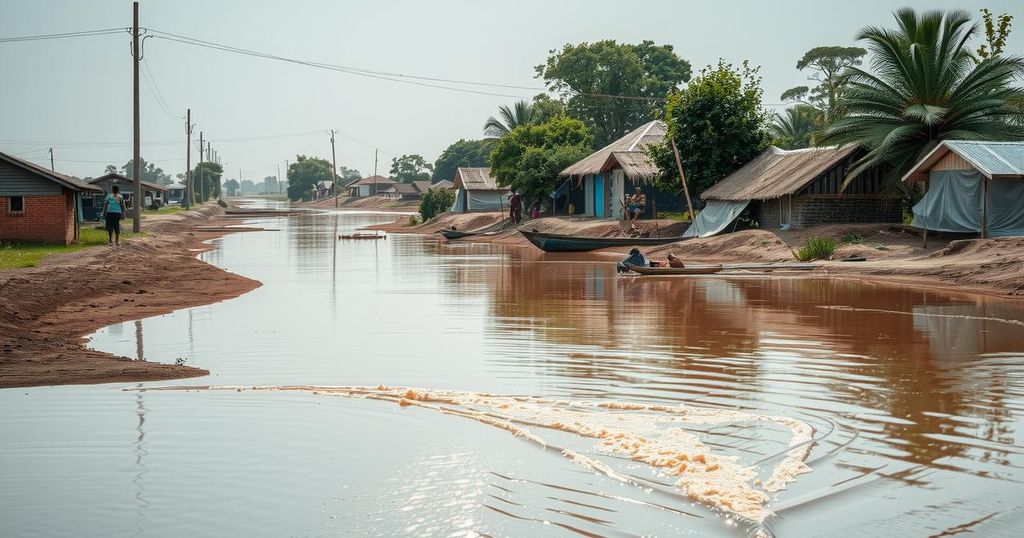Tropical Cyclone Chido: A Catastrophic Impact on Mayotte and Broader Climatic Concerns
Tropical Cyclone Chido significantly damaged Mayotte, leading to thousands feared dead and extensive destruction. The cyclone, categorized as a Category 4 storm, represents a historic climatic event for the islands. Concurrently, the Biden administration is working to finalize critical environmental policies before the transition of power, amid global climate negotiations that continue to fall short of achieving binding agreements. Meanwhile, evidence of coastal subsidence in Miami highlights the pressing challenges posed by climate change.
On Mayotte, a small French territory located in the Indian Ocean, Tropical Cyclone Chido wreaked devastating havoc, leading to catastrophic destruction and a feared death toll in the thousands. As a Category 4 storm with winds reaching 136 miles per hour, it was the most powerful cyclone to strike the islands in nearly a century. Reports depict scenes of total devastation, with neighborhoods reduced to rubble and critical infrastructure destroyed, highlighting the severe impact on the local population, particularly among undocumented migrants residing in vulnerable areas. While currently, 14 fatalities have been confirmed, this number is expected to rise in the coming days as rescue efforts continue.
In the broader context, the Biden administration is facing an urgent deadline with key environmental decisions pending before President Biden’s term concludes. Notably, the Energy Department’s Loan Programs Office has several significant loan commitments for clean technology that could be jeopardized by a potential Trump administration. Efforts are underway to solidify these financial agreements against potential future challenges posed by the incoming administration, particularly concerning electric vehicle and environmental policy. Trump’s transition team has recommended drastic cuts to EV support and added tariffs on battery materials, indicating a potential roll-back of the preceding administration’s climate initiatives.
Additionally, global discussions at the UN COP16 summit aimed at combating desertification ended without a significant agreement, reflecting the ongoing challenge of coordinating international responses to environmental crises. The summit, which took place in Saudi Arabia, saw nearly 200 countries participating but could not produce a legally binding agreement to assist vulnerable countries affected by drought conditions. Jes Weigelt from TMG Research expressed disappointment over this outcome, underscoring a recurring trend in global climate negotiations.
Also of note is significant research indicating that buildings along Miami’s coastline, including notable structures associated with high-profile developers, are experiencing unexpected subsidence. A recent study from the University of Miami identified that approximately 35 buildings have sunk by up to three inches in recent years, raising concerns about rising sea levels and their implications for future real estate development in coastal areas.
Lastly, research highlighted how climate change has intensified severe weather patterns, including the recent typhoon season in the Philippines, which was marked by unprecedented storm activity. The World Weather Attribution report described how this year’s conditions led to six typhoons striking the nation in November alone, signaling the urgent need for adaptive strategies to deal with increased frequency of extreme weather events.
Tropical Cyclone Chido emerged as a significant environmental disaster impacting Mayotte, bringing to the forefront the vulnerabilities of regions susceptible to extreme weather events. The current political landscape in the United States, particularly under the incoming administration of former President Trump, raises concerns regarding the continuity of environmental protections established during Biden’s tenure. Furthermore, global discussions on climate change and its repercussions have been highlighted by the failure of the COP16 summit to yield actionable agreements, thus reinforcing the notion that climate cooperation among nations remains a complex and critical issue.
In conclusion, Tropical Cyclone Chido has left Mayotte in a state of devastation, reflecting the larger challenges posed by climate change and extreme weather events. The environmental decisions made by the Biden administration in these last moments before transition will shape future policy directions. The UN COP16 summit further illustrates the global struggle to achieve meaningful climate agreements, as poorer nations contend with the impacts of climate change. The ongoing subsidence issues in Miami similarly reveal the immediate effects of climate-related factors on coastal infrastructure, emphasizing the need for proactive measures in urban planning and environmental protection.
Original Source: heatmap.news




Post Comment